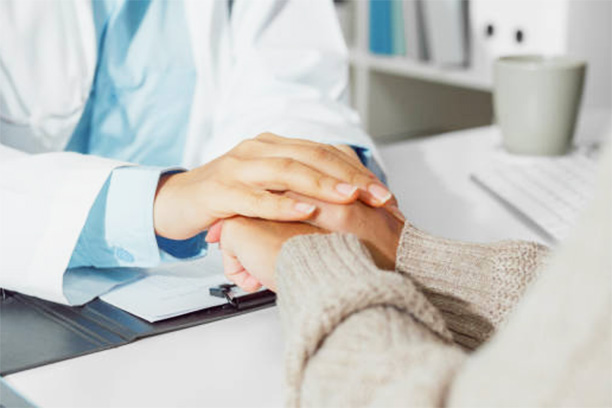Signs & Symptoms
In most cases, women are not aware that they have uterine fibroids, because very often there are no symptoms. The fibroids are most frequently discovered during routine pelvic exams or during prenatal ultrasound testing. In women who do experience symptoms, these can become noticeable because of the size(s) or location of the fibroid(s) in the uterus. Women with a larger number of fibroids may have increased likelihood of experiencing symptoms. Common uterine fibroid symptoms include the following:
- Pelvic pain or pressure
- Leg pain
- Backache
- Constipation
- Difficulties in emptying bladder
- Frequent urination
- Heavy menstrual bleeding
- Menstrual bleeding +7 days
- Unexplained Weight Gain
- Infertility
- Loss of Libido
- Painful Sex
You should be examined by your doctor if you experience any of the following:
- Persistent pelvic pain
- Menstrual periods lasting longer than 7 days
- Very heavy menstrual bleeding
- Painful menstrual periods
- Bleeding or spotting between periods
- Difficulties in emptying the bladder
IMPORTANT: Obtain medical care immediately if you experience sudden sharp pain in the pelvic area or extreme vaginal bleeding.
Uterine Fibroids
-
What Are They?
-
Causes
-
Risk Factors
-
Complications
About VIP Fibroid Center

We have helped many Bay area women manage symptoms such as pain or heavy menstrual bleeding caused by uterine fibroids. We are among the first to utilize the latest and most innovative methodologies in fibroid embolization. And, our objective is to help our patients avoid fibroid surgery.
Treatment options: Women need to be fully informed about their options for treatment of uterine fibroids in order to avoid unnecessary surgery. In cases that do involve surgery, we provide the most minimally invasive approach, with outpatient procedures that avoid a hospital stay. Such procedures involve no loss of blood, and they permit patients to quickly resume their usual activities.
Level of patient care: We are committed to providing our patients with the highest quality of uterine fibroid treatment in the San Francisco Bay area. Our focus is on providing healthcare that is personalized to meet our patients’ unique concerns in a modern, comfortable, welcoming environment. Our friendly, helpful staff strive to ensure that our patients have the best possible experience.
Dr. Anup Singh and Dr. Rajeev Tandon have been proudly serving patients’ needs for a San Francisco Bay area uterine fibroid specialist for more than 15 years, including patients from San Jose and throughout the greater San Francisco Bay area.

Request a Consultation
To request a consultation, fill out the form below or call us at 408-371-8346
